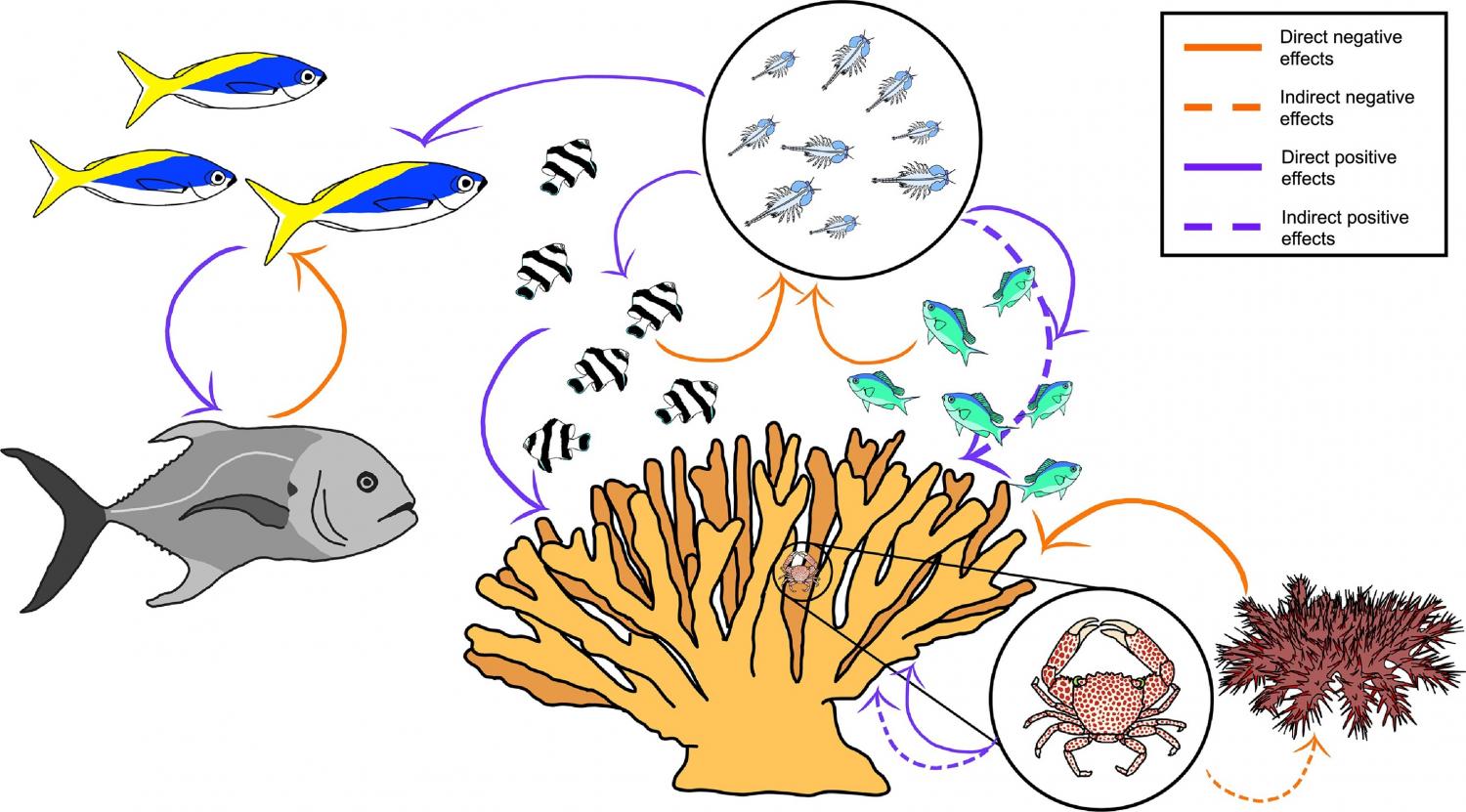
Ecology plays a central role in the management and conservation of ecosystems. However, as coral restoration emerges as an increasingly popular method of confronting the global decline of tropical coral reefs, an ecological basis to guide restoration remains under-developed. Here, we examine potential contributions that trophic ecology can make to reef restoration efforts. To do so, we conducted a comprehensive review of 519 peer-reviewed restoration studies from the past thirty years. From our review, we quantified how various important trophic interactions have been considered by restoration practitioners to date and discuss how they may be utilized to benefit coral restoration. We found that despite rapidly growing interest in coral restoration, only 15% of restoration publications considered trophic interactions, highlighting a clear mismatch between the fundamental role of trophic ecology on coral reefs and its consideration in restoration efforts. Herbivory was by far the most commonly studied process (46 publications) while other processes such as corallivory (17 publications), coral heterotrophy (8 publications), and consumer-derived nutrient cycling (4 publications) received far less attention despite their known importance on reefs. To promote consideration of these important processes in restoration, we consider how specific trophic interactions within each of these areas can be leveraged through direct and indirect pathways to benefit coral restoration. Ultimately, we argue that rather than considering important trophic interactions as emergent outcomes of reef restoration, practitioners utilize the lessons learned from trophic ecology to help achieve their desired restoration outcomes.
